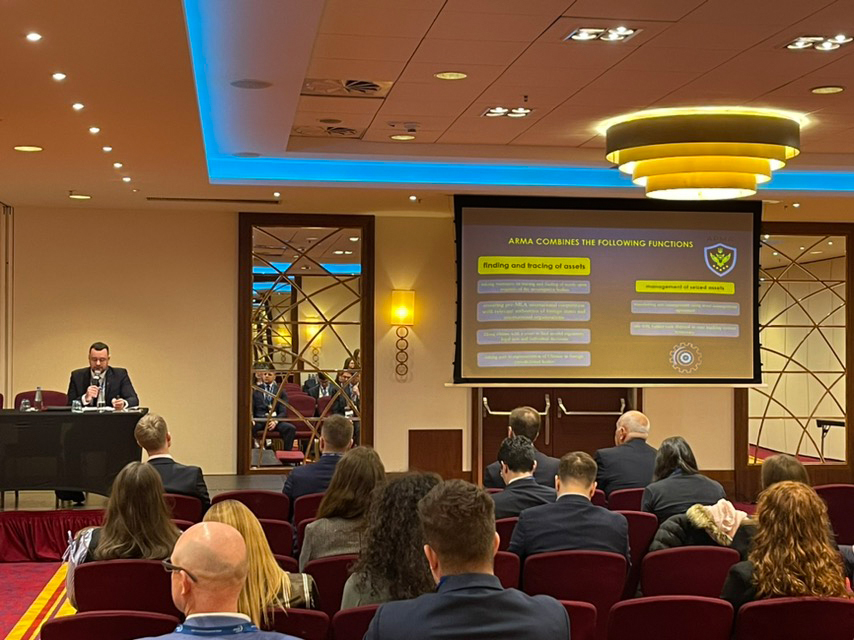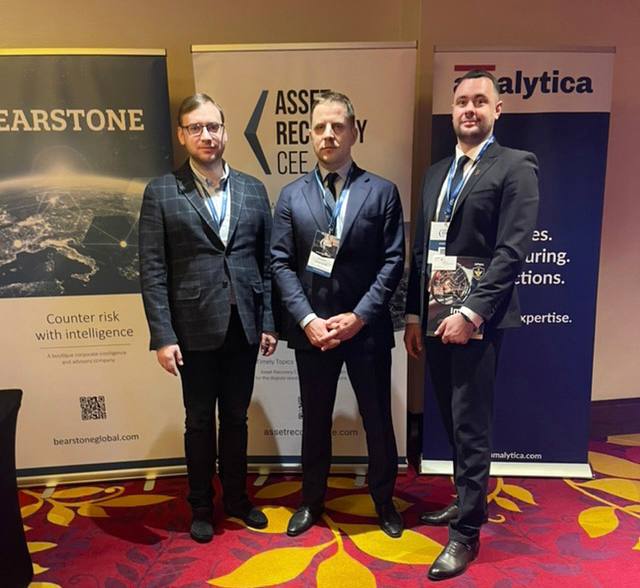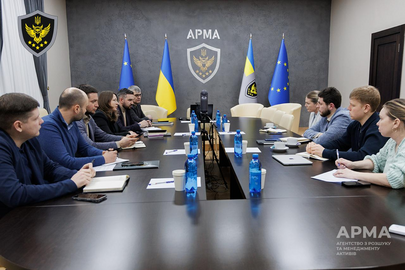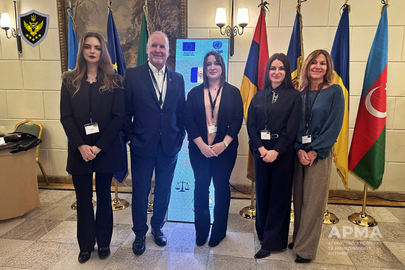Ukraine was represented at the forum by Pavlo Velykorechanin, Deputy Head of the Asset Recovery and Management Agency, and Oleg Ustenko, representative of the Office of the President of Ukraine.
In his speech, Pavlo Velykorechanin noted that Ukraine faces numerous challenges related to the recovery of assets obtained through criminal means, in particular as a result of russian aggression. ARMA is already applying mechanisms for such recovery in practice. By receiving court rulings on asset management, the Agency is trying to legalise such decisions abroad.
The first resonant case is Medvedchuk's yacht Royal Romance. The sale of such an expensive asset abroad, according to new European rules initiated by the Agency - through an auction - will clearly demonstrate the return and satisfaction of the crimes committed by the traitor.
At the same time, the world will not only see the effectiveness of ARMA as an anti-corruption body, but will also see that Ukraine is a reliable partner and is using all possible mechanisms to fill the budget from seized assets found abroad.
"The issue of russian funds abroad is currently relevant. ARMA can purchase military bonds with this money and use the proceeds to support Ukraine's defence capability," said Pavlo Velykorechanin. He also reminded that ARMA is an independent institution that has no analogues in the system of state authorities of Ukraine. It is the only body in Ukraine that traces and sells sanctioned assets abroad. " With such unique capabilities, we also need to unify the rules in national legislation," said the Deputy Head of ARMA. According to him, in particular, the challenge is the existing rules of the CPC of Ukraine on international legal assistance, which in the current version slow down the process of providing international legal assistance.
The Agency is convinced that during the war, increasing number of crimes against national security and the state, international crimes, increasing number of court decisions on the sale or management of assets derived from crimes (e.g., cash) located abroad, it is necessary to determine ARMA as an official Ukrainian entity to execute court decisions on the management of seized assets. ARMA has already developed the relevant amendments to Section 9 of the CPC, in particular Article 545.
Deputy Head of ARMA also said that over the past 10 months, ARMA has undergone a significant transformation. In this short time, ARMA's new team has achieved significant results, including the opening of public access to the Unified State Register of Assets Seized in Criminal Proceedings.
"We have opened public access to the Register and continue to actively cooperate with state authorities, civil society and international partners," he said, adding that ARMA's priority remains a proactive policy in addressing the complexities of asset recovery to ensure that the state budget receives more revenue in wartime.
The Agency has already approached the Ministry of Digital Transformation and EUAM about the need to modernise the Registry and the possibility of creating a separate section in this Register to reflect seized assets abroad, entering data on them and the effectiveness of their sale or management by ARMA.
The European expert community has drawn attention to the work of ARMA in the management of corporate rights. The practice of ARMA obtaining permission from the owner to manage seized corporate rights is currently used only in Ukraine and does not meet European standards. Therefore, the European partners called for changes to Ukrainian legislation regarding the management of seized corporate rights.
The draft law No. 10069, which the Verkhovna Rada of Ukraine is due to consider in the next plenary week, is intended to stop this practice. The need for such a decision was emphasised by Head of ARMA Olena Duma during a roundtable discussion with Ukrainian lawyers.




